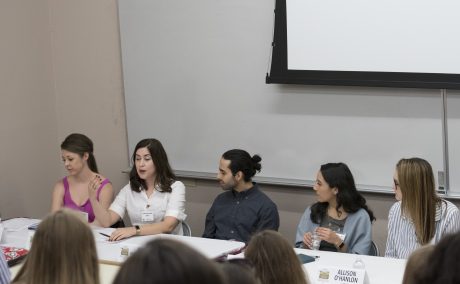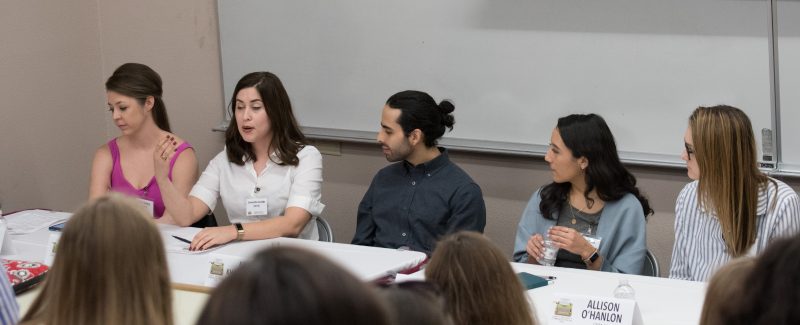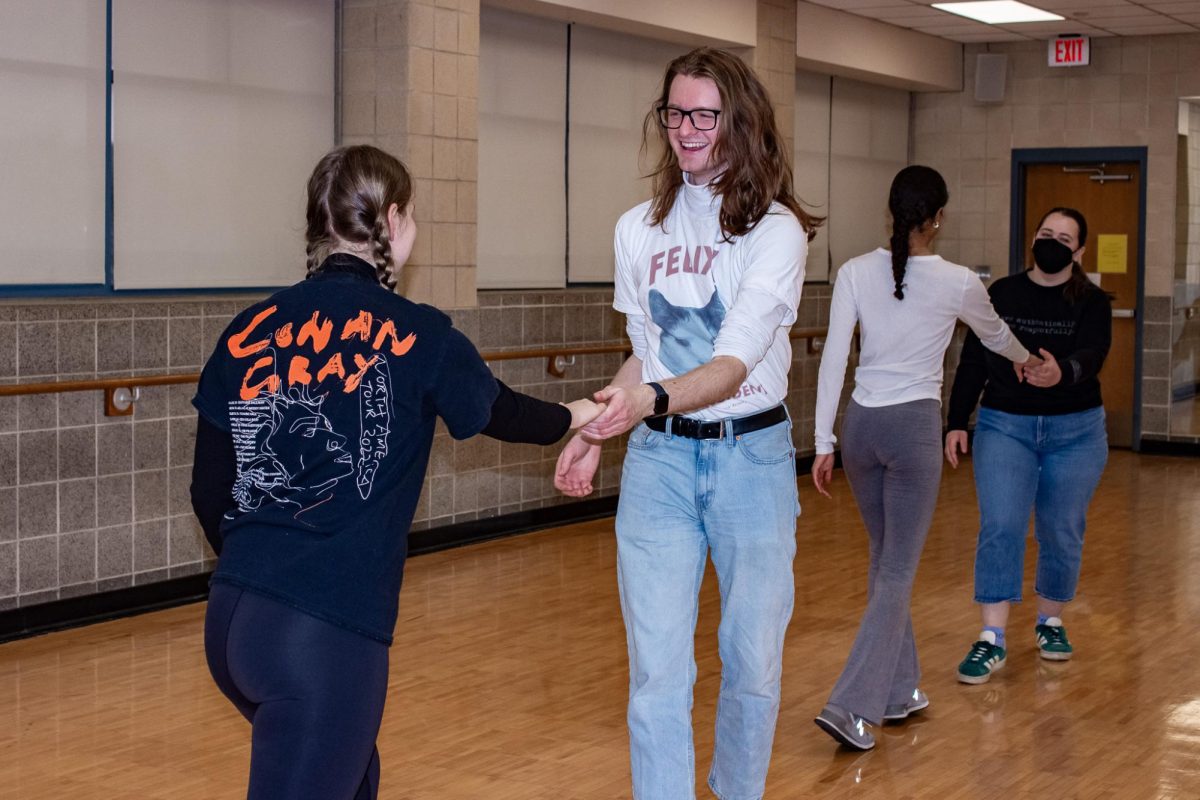What do you want your life to look like in five years? In 10 years? Thirty years? Graduating communication seniors got a glimpse of some of the career paths they might take last Friday at Communication Day. The communication department held three different panels with alumni who discussed their careers and the versatility of a communication degree.
Communication Day began with a luncheon with the keynote speaker, NBC News producer John Bentley. Following the luncheon, students could attend three panels. The first was titled Transitioning from Trinity to the “Real World.” The most recent group of graduates spoke at this panel to advise students on what they wish they had known after graduating. The next panel, composed of alumni who graduated 15 years ago, centered on the nontraditional career options available to a communication major. Speakers at the last panel reflected on how media has affected their careers. This panel was made up of graduates from 30 years ago. Following the panels, students were given the opportunity to network with these alumni at a reception.
Communication Day was open to the Trinity campus, but the majority of attendees were seniors working on their capstone projects — final assignments that test students’ comprehension. This event was originally created in response to requests from past capstone students who wanted more information on career paths and networking opportunities. All senior communication majors were required to attend.
Although required to go, many students said they would have gone anyway for the opportunity to network and to hear about the flexibility of a communication degree. Abigail Tisdale, a senior business and communication double major, was especially excited for the luncheon with John Bentley.
“I’m not dead set in what I want to do after I get my MBA, so I love having these opportunities at Trinity to go network with alumni and see where they started their career, where they’re headed and where they’ve ended up,” Tisdale said.

Tisdale believes that the communication department offers strong networking connections.
“I think that even if the amount of alumni that Trinity can reach may be smaller than at UT or an A&M, they’re a lot stronger for Trinity students to connect with,” Tisdale said.
MacKenzie Hill, a senior communication major, plans to work in broadcasting and production. Hill values these panel discussions to show the applicability of a communication degree.
“The great thing about the department of communication is that there is so much flexibility and a lot of options in terms of exploring what you’re interested in,” Hill said.
Nayeli Perez, a 2016 graduate with a communication major and an art and art history minor, spoke in the panel for Transitioning from Trinity to the “Real World.” Perez related to the uncertainty some students may feel after graduating, but she emphasized that versatility of a communication major makes it valuable in job searches.
“The communication department is a big umbrella department. We get people who want to do journalism, who want to do design, who want to do broadcast and TV production. The fact that the communication major is not a straightforward major may make you feel like you don’t have a guaranteed good job. So when you hear what people have done, it helps you feel excited about the future, and it gives you more ideas of how you could go about getting those opportunities,” Perez said.
Belinda Menchaka, a 1984 graduate and journalism major, appreciates the skills her major gave her that allowed her to combine her passion for dance and public relations. Because Menchaka now works as the director of education for the Guadalupe Cultural Arts Center, she is able to teach dance classes and work as the head of her department. Menchaka believes that her communication skills increased her chances of being hired at the Guadalupe Cultural Arts Center, allowing her to work with both her passions.
“I think the courses I took here, I didn’t realize I was going to end up using them. Just being exposed to the writing and the opportunity that I had as a student to interview people, the courses that I took allowed me to go out and talk to people and I still use those skills today. Communication is essential,” Menchaka said.
Sammye Johnson, professor in the communication department, worked with faculty and alumni to plan Communication Day. Johnson believes that the panels allow students to realize the potential of a communication degree.
“The communication curriculum isn’t solely focused on that first job; we’re giving our majors the tools to use throughout a professional lifetime,” Johnson wrote in an email interview.







